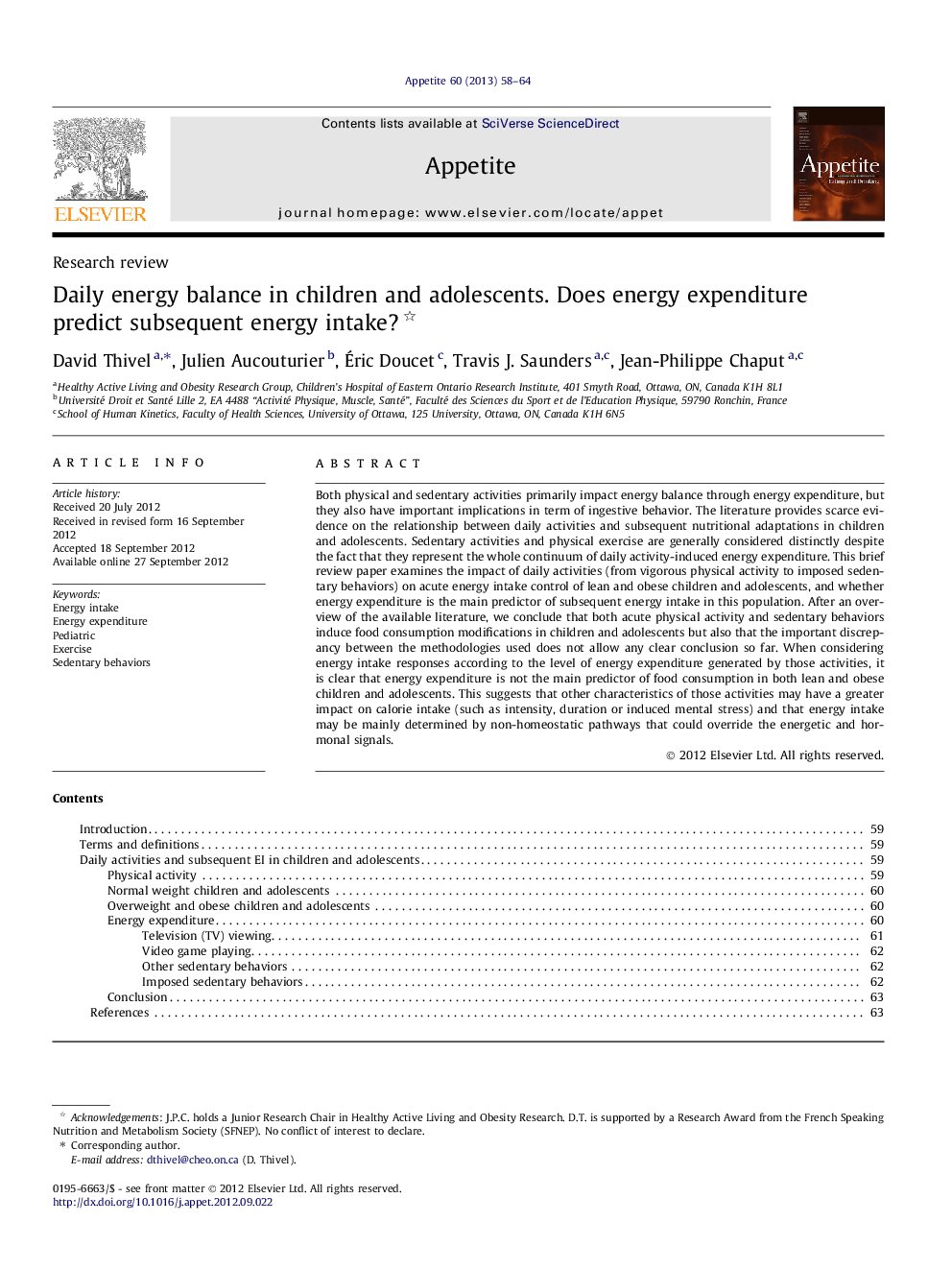| Article ID | Journal | Published Year | Pages | File Type |
|---|---|---|---|---|
| 939755 | Appetite | 2013 | 7 Pages |
Both physical and sedentary activities primarily impact energy balance through energy expenditure, but they also have important implications in term of ingestive behavior. The literature provides scarce evidence on the relationship between daily activities and subsequent nutritional adaptations in children and adolescents. Sedentary activities and physical exercise are generally considered distinctly despite the fact that they represent the whole continuum of daily activity-induced energy expenditure. This brief review paper examines the impact of daily activities (from vigorous physical activity to imposed sedentary behaviors) on acute energy intake control of lean and obese children and adolescents, and whether energy expenditure is the main predictor of subsequent energy intake in this population. After an overview of the available literature, we conclude that both acute physical activity and sedentary behaviors induce food consumption modifications in children and adolescents but also that the important discrepancy between the methodologies used does not allow any clear conclusion so far. When considering energy intake responses according to the level of energy expenditure generated by those activities, it is clear that energy expenditure is not the main predictor of food consumption in both lean and obese children and adolescents. This suggests that other characteristics of those activities may have a greater impact on calorie intake (such as intensity, duration or induced mental stress) and that energy intake may be mainly determined by non-homeostatic pathways that could override the energetic and hormonal signals.
► Daily activities affect energy intake in children and adolescents. ► Intake alterations after activities are not driven by the amount of energy expended. ► Energy balance is more affected through energy intake than expenditure. ► Energy intake is mainly determined by non-homeostatic pathways in youth.
